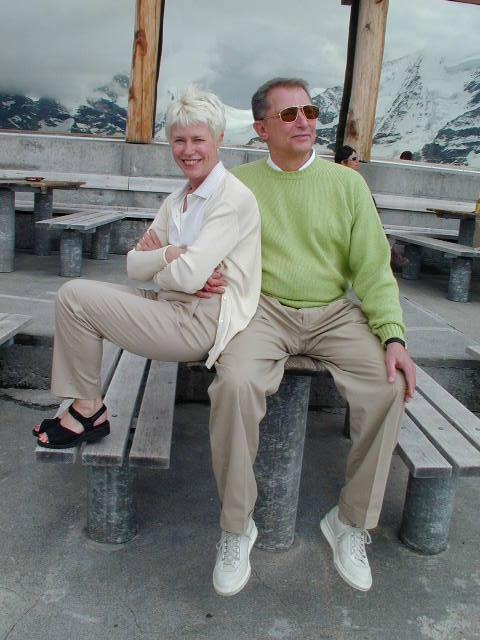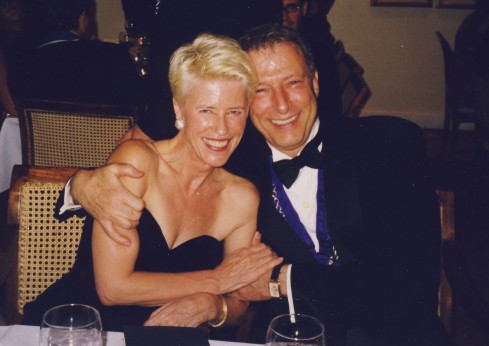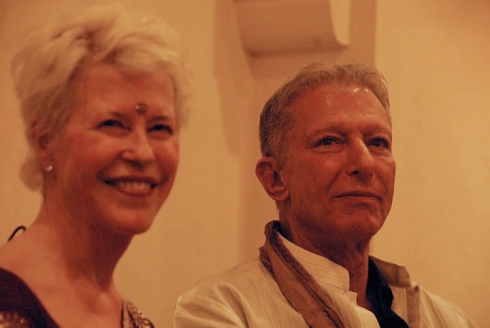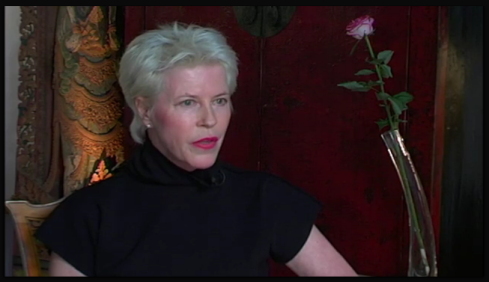You are currently browsing the tag archive for the ‘Gonneke Spits’ tag.
The following is from the January 1977 Graduate Review:
GONNEKE SPITS: “A few months ago, Elaine Cronin, who manages the Chicago Center, was in town and Werner took Elaine, Laurel and me to dinner. We’d all been there when est started, and here we were together again. [The full staff in October, 1971, consisted of Phyllis Allen, Elaine Cronin, Sheila Pearson, Jack Rafferty, Laurel Scheaf, Gonneke Spits, and Barbara Wilson.] Werner said something at that dinner meeting that was really incredible for us. He said to us that where est really came from was not just from him as an individual, but out of the relationship that the four of us had. You know, we’d never looked at it that way. To tell you the truth, I always realized Werner was the source of est and thought we just came along with the furniture, you know.
“We got to look at what we all brought with us that was actually a part of the integrity of est. You see, without the part that Laurel represents, and without the part the Elaine represents, it’s not complete, and without the part that I represent, it’s not complete either. As est developed, some things were added that seemed to be necessary for putting it out into the world. Things like what Jack brought in, what Rich brought in, and what other people brought in, too. It isn’t that anyone was personally necessary, but whatever it was that we presented was and certainly is part of what est is.
“For Werner, it’s all about his work. That’s what he cares about and that’s what he is interested in. Till his last breath he will be out there creating things and making opportunities for people. He will be creating more types of work that people can benefit from. That’s really what turns him on, his work.” ~ Gonneke Spits
Original est staffer Gonneke Spits remains a close colleague of Werner Erhard to this day.

Werner Erhard and Gonneke Spits, 2010
Behavior that lacks integrity leads to value destruction. This paper analyzes some common beliefs, actions, and activities in finance that are inconsistent with being a person or a firm of integrity. Each of these beliefs leads to a system that lacks integrity, i.e., one that is not whole and complete and therefore creates unworkability and destroys value. Focusing on these phenomena from the integrity viewpoint, the authors argue, makes it possible for managers to focus on the value that can be created by putting the system back in integrity and correcting the non-value maximizing equilibrium that exists in capital markets. Overall, this paper summarizes a purely positive theory of integrity that has no normative elements whatsoever, and demonstrates how it applies to both individuals and organizations. In effect, integrity is a factor of production just like knowledge, technology, labor, and capital, but it is undistinguished—and its affect (by its presence or absence) is huge. Key concepts include:
- Integrity matters. Not because it is virtuous, but because it creates workability.
- Workability increases the opportunity for performance, and maximum workability is necessary for realizing maximum value.
- Integrity thus becomes a necessary (but not sufficient) condition for value maximization-a proposition that should become an important element in every finance course in every business school.
– The text above is as stated in Harvard Business School – Working Knowledge – The Thinking That Leads – about the working paper by Werner Erhard and Michael C. Jensen entitled, Putting Integrity into Finance: A Purely Positive Approach
“Love is granting another the space to be the way they are and the way they are not”
-Werner Erhard
Werner Erhard and Gonneke Spits.
Werner Erhard in discussion with Professor Jonathan D. Moreno, April 2016 at the University of Pennsylvania.
“Werner Erhard paced the aisle between rows of desks in a Toronto conference room. “If you’re going to be a leader, you’re going to have to have a very loose relationship with this thing you call ‘I’ or ‘me,’” he shouted. “Maybe that whole thing in me around which the universe revolves isn’t so central! Maybe life is not about the self but about self-transcendence! You got a problem with that?”
No one in the room had a problem with that. The desks were occupied by 27 name-tagged academics from around the world. And in the course of the day, a number of them would take the mike to pose what their instructor referred to as “yeah buts, how ‘bouts or what ifs” in response to his pronouncements – but no one had a problem with them.
Peter Haldeman – New York Times, November 29, 2015
“I have no interest in the justification of circumstances or producing guilt in others by assigning obligation. I am interested in providing an opportunity for people to experience mastery in the matter of their own lives and the experience of satisfaction, fulfillment, and aliveness. These are a function of the self as context rather than thing, the self as space rather than location or position, the self as cause rather than self at effect.”

“An Evening with Werner Erhard: On Mastery”
Werner Erhard delivered public lectures for over two thousand people in New Delhi and in Mumbai in November 2010. Werner Erhard is pictured here with Gonneke Spits in Panchgani, India. For more on the events in India visit wernererhard.com
Werner Erhard’s est Training inspired its participants to go out and make a difference with their lives, contribute to humanity, and give back to their communities. To fulfill the humanitarian motivations of these est graduates a number of not for profit organizations were founded by Werner Erhard along with other original est staffers, notably Gonneke Spits, and the literally hundreds of thousands of individuals who had participated in The est Training. est graduates knew the power of “the little individual” and used their lives to improve their communities through the Community Workshop; and give Youths At Risk a new opportunity in their lives, and fostered and funded development work in Africa through The Breakthrough Foundation; and committed themselves to work to end hunger in the world through The Hunger Project and its many offshoots. These organizations, along with the Werner Erhard Foundation which played a hand in establishing all of these charities, provided forums for the individual to make a difference worldwide. For more information about the Werner Erhard Foundation visit http://wernererhardfoundation.org.
The est Training was offered from 1971- 1984. This video features Werner Erhard, Warren Bennis, Dr. Fernando Flores, filmmaker Dan Alpert, est Trainers Roger Dillan, Stewart Esposito and Vic Gioscia. The film is about the est training with Werner Erhard. For more information on the history of The est training (est) see http://erhardseminarstraining.com


